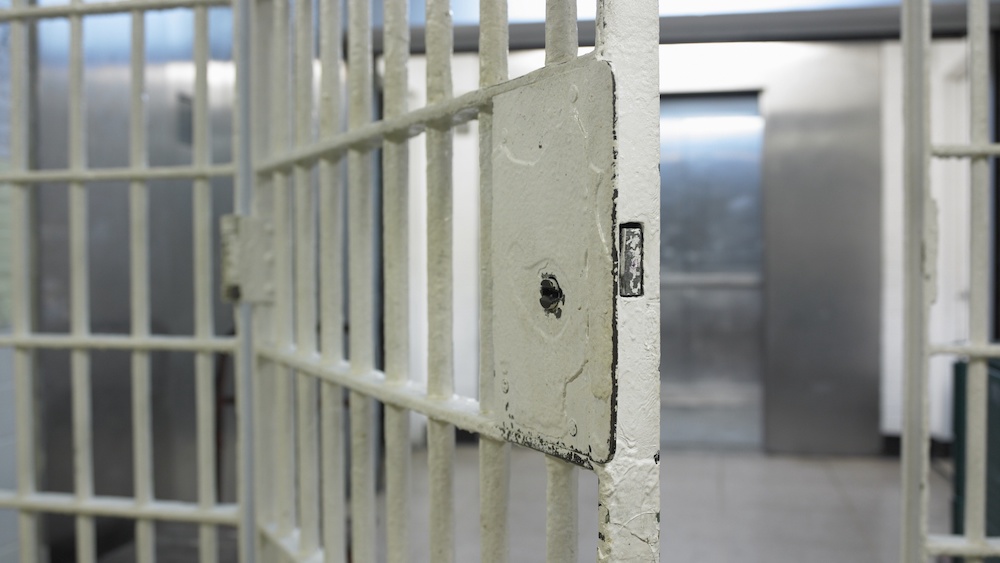If you’re interested in sharing your opinion on any cultural, political or personal topic, create an account here and check out our how-to post to learn more.
Opinions are the writer’s own and not those of Blavity's.
____
Dear President Joe Biden and Vice President Kamala Harris,
Stories of children being mistreated by our justice system are ubiquitous — especially for Black youth. Earlier this year, a Florida teen was body-slammed to the ground by a school resource officer and a nine-year-old was pepper-sprayed and violently subdued by Rochester police responding to a mental health call. The calls for investigations and firings were immediate.
After a year that has made the harms of the criminal justice system glaringly apparent, our country has finally awakened to our systems’ propensity for violence and incarceration, especially towards Black youth. For me, however, it’s personal. I was recently released from a juvenile correctional facility after six years.
While I am happy to see a Black woman help lead this nation, I know from first-hand experience that America is a racist country. Like so many of my Black peers, I’ve known this country is racist since I was a child. I’ve known since my mentors had to sit me down and explain that I would be treated differently because of my skin color — my education would be of poorer quality than white children and the police would stalk my schools looking for children to throw in jail for the smallest offenses. This is why I ended up in prison in the first place.
I am writing to ensure you uphold the promises outlined in your campaign, including eliminating racial disparities in prisons, implementing community-based alternatives to prison, ensuring fairer sentences and expanding federal funding for mental health support. I am writing to ask that those personally impacted by the juvenile justice system, like myself, have a seat at the table to have input on these changes.
I was 15 years old when I took my first plea deal. I didn’t fully understand what was happening. I couldn’t even read some of the words on the paper. I had no support system to guide me through the process, as I lost my parents at a young age, and they would not allow me to see my mentors, family or friends. I was still grieving the loss of my parents but was isolated from everything and everyone I’ve ever known.
My story is not unique. When it comes to Black children in the system, we only account for 14% of the child population but represent 38% of children in juvenile facilities — making Black youth nearly five times as likely to end up in youth prisons as their white peers despite engaging in risky behavior at similar rates. Incarcerating Black children is a means to remove them from society, not give them the tools to succeed in life.
America’s juvenile justice system isn’t safe, isn’t fair, doesn’t work and can’t be fixed. The research also shows that incarcerating children only makes crime worse — discrediting any rationale that maintaining the carceral state is key to reducing crime. Youth incarceration also severely affects the chance for impacted youths to finish school, with over two-thirds of incarcerated youth never returning to school upon release, including myself. Two months after my release, I’m still struggling to find a job and secure housing because my identification and social security card have yet to be released to me yet. I’m also still eagerly awaiting the outcome of my clemency filing from four years ago that, if approved, would help with my prospects of securing a better future.
With 3,360 youth testing positive for COVID-19 in juvenile facilities across the country, the outbreak of COVID-19 inside youth prisons and detention centers has only laid bare the urgency to move away from the prison model toward a community-based model that better protects the health and safety of Black and brown children.
There are several policies in your criminal justice reform plan that I urge you to implement as soon as possible. Incentivizing states to stop incarcerating kids by creating a new grant program to encourage states to place youth in community-based alternatives instead of prison and repurpose empty prisons for the community’s benefit and not for future use as a detention facility. You both have also expressed an interest in eliminating racial disparities, ensuring fairer sentences, expanding federal funding for mental health and substance use, and expanding funding for after-school programs, community centers and summer jobs, among other policy proposals.
I’m asking that in your first 100 days in office, you will fully commit to youth justice priorities and expand on the initial proposals. Policies that will radically disrupt the cyclical nature of the carceral state are what this moment requires.
Ultimately, I urge your administration to listen to young people. I am a youth leader with Progeny and the Youth First Initiative, which is pushing to reimagine the juvenile justice system in this country and completely shut down the school-to-prison pipeline. You should help facilitate youth visioning sessions where you’d hear how the juvenile justice system has deeply harmed youth and their families, and how to improve the outcomes in the future.
As you’ve stated, you are well aware that this country has never lived up to the American creed of equality, equity and justice for all — especially when it comes to our criminal justice system. As broken as the country seems, as painful as my experiences were and despite the trauma, I’m still working through, I’ve never stopped striving to create a future where this creed is achievable. I’m open to the work it will take to fully realize these changes. I hope you will work with me to get there.
